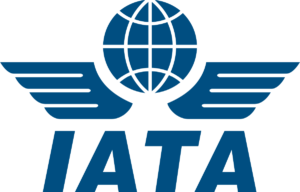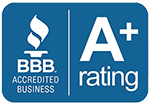What is Basic Business Class?
Image source: unsplash.com
We see how the airlines have changed the amenities you get in different classes. It all started when they removed economy class amenities to create a new Basic Economy Class.
It is currently being observed how this is happening with the Business Class. In this way, passengers buy only a seat in Business Class, and the types of extras that they can take advantage of are a matter of personal choice.
One of the airlines that are leading the way is the Emirates. The company said it is allocating Business Class tickets to provide “special” or “H” class, also known as Basic Business Class.
But what is this new type of class, what will be the basic business class fares, and what would it mean for business travel managers? We will look at these topics a little below, which we hope will clarify the Basic Business Class.
Basic Business Class – What’s In and What’s Out?
When we talk about Business Class, we always associate it with a pleasant and luxurious experience. It includes priority luggage loading and check-in, access to airport lounges, airport transfer, more comfortable business class seats, a wide variety of delicious food and drinks, and many other extras that make international long haul flights much more enjoyable and relaxing.
But is all this included in the Basic Business Class?
The Basic Business Class has a significant advantage: the much lower price than passengers should pay. You can save up to 30% on airfare by choosing it. But what is the actual cost of this, and what should you get rid of?
Let’s look at the restrictions that Emirates imposes, for example:
- You do not have access to the lounges – if you are among the new customers of the airline and do not have the so-called “elite status” in it, then your access to the lounges will probably be limited. End of the opportunity to take a shower and relax while waiting for your flight.
- There’s no airport transfer or limousine pickup – if you always take advantage of airport transfers on international flights, then Basic Business Class is not for you. Most airlines do not include this extra in the tariff.
- You do not have the right to pre-book a seat till 48 hours before departure – if you choose the Basic Business Class, you risk the availability of seats on the plane, which certainly creates discomfort, mainly if you are used to all kinds of amenities that standard Business Class offers.
- You cannot change or cancel a flight ticket – some of the airlines that offer Basic Business Class do not allow you to change or cancel your flight. And if you have this opportunity, you pay much higher fees.
- Frequent flyer mileage accrual is reduced.
Keep in mind that the extras and conditions of the Basic Business Class vary from airline to airline. That’s why it’s always a good idea to research and check out what different companies have to offer.
Another thing that is essential to share is that the Basic Business Class is unavailable for all routes. That means that flights to some countries are standard Business Class. What is certain is that airlines offer different Business Class options so that most passengers can choose Business Class over Economy Class.

Image source: unsplash.com
What Does This Mean for Travel Managers?
As far as travel managers are concerned, they must be aware of Business Class trends, especially when international flights to and from the United States.
Travel managers often block access to the most basic fare types in the economy cabin via the online booking tool. The reason for this is that the cost-benefit analysis is usually unfavorable. It means that savings are not worth the inconvenience that passengers will experience.
Of course, the ability to save costs for a company is an essential factor, and this is the job of a travel manager – to find a Business Class ticket at a reasonable price. Still, at the same time, this is not at the expense of passenger convenience.
One of the essential things that every travel manager should know is that the savings in choosing a Basic Business Class vary, depending on the selected route and country. That is why you need to look in detail at all possible routes to determine whether it is worth choosing a Basic Business Class.
In this regard, we advise you to ask yourself a few essential questions:
- Which are the airlines that offer Basic Business Class?
- Does what an airline offers to meet your needs?
- What the potential savings are?
- Will you have to pay extra for amenities that are lacking in the Basic Business Class?
- Are you likely to need to change or cancel the flight?
By answering these few questions, you will know whether it is worth betting on the Basic Business Class or it is better to choose the standard one.
Sometimes, in our desire to reduce costs, it often turns out that we choose flights that have minimal amenities, and the amount saved is insignificant. Another way you can find out what your potential savings will be is by using business class fare forecasting tools for the routes you use most often.
Basic Business Class: Beyond the Savings
When considering choosing a Basic or Standard Business Class, it is good to think beyond savings. It often turns out that passengers are deprived of essential amenities to save costs. That is why it is crucial to analyze your passenger’s behavior and company policy.
If it is more important for a business to provide a transfer from and to the airport by limousine and to have lounge access, then comfort is much more important than potential savings.
Such amenities can allow passengers to be productive and work. Last but not least, you need to know if you often need to change or cancel your flights. If so, the Basic Business Class is unsuitable because it will not offer these options, or the fees will be much higher.
What to Do Next?
It is essential to know what are the changes happening in airlines like Emirates. It is crucial to know the Basic and Standard Business Class options and be aware of the trends. That will help you build successful strategies that meet the needs of the specific business.





